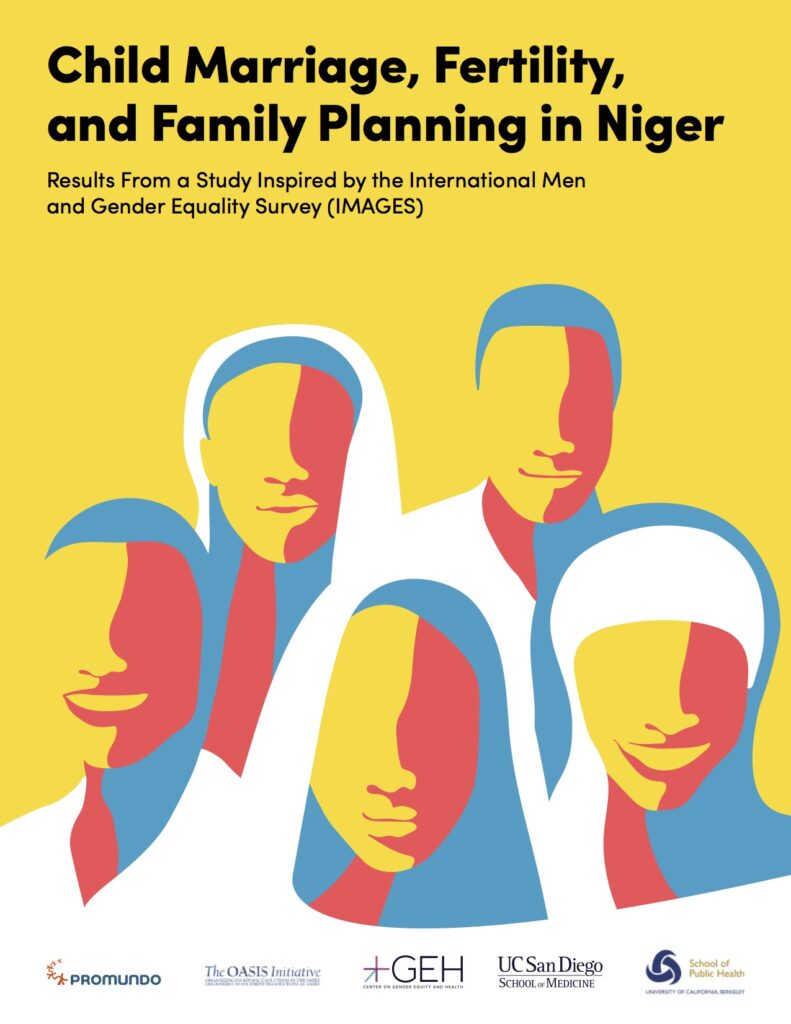This mixed-methods study in Niger – inspired by the International Men and Gender Equality Survey (IMAGES) – offers critical insight into the motivations, attitudes, and behaviors of married adolescent girls and their husbands related to sexual and reproductive health and rights (SRHR). Equimundo produced this study in collaboration with The OASIS Initiative, a project of University of California at Berkeley and Venture Strategies for Health and Development, and the Center on Gender Equity and Health at the University of California, San Diego.
Niger is known for having the highest rate of child marriage – a marriage or union in which at least one spouse is under 18 years old – and adolescent fertility in the world. The two-part study, published in the quantitative full report below, Child Marriage, Fertility, and Family Planning in Niger, and the qualitative report, Young Men’s Transition to Adulthood: Relationship Formation and Marriage in Maradi, Niger, gathered data from 2,400 married adolescent girls aged 13 to 19 and their husbands aged 15 to 53.
Building on the growing evidence base about child marriage, this study provides new data and analysis on SRHR; marital relations and parenting; healthcare access; gender attitudes and norms; and intimate partner violence. The reports provide findings, lessons, and recommendations for future policy and programming.
The full report is available below.
The executive summary is available here in both English and French.
The qualitative report is available here.
Read some of the key findings here.
“Knowledge, attitudes, and practices related to family planning and gender equity among husbands of adolescent girls in Niger” is an article published in the Global Public Health journal, stemming from this study.
Resources
English
Child Marriage, Fertility, and Family Planning in Niger: Results From a Study Inspired by the International Men and Gender Equality Survey (IMAGES)
PDF Preview